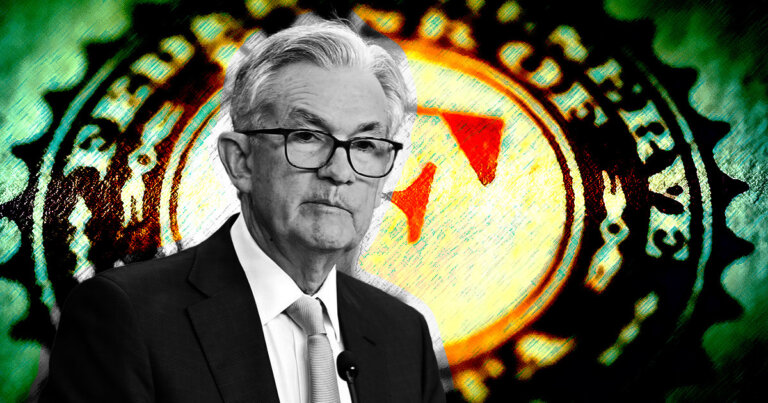 Fed foresees slowdown in GDP growth but remains committed to 2% inflation target
Fed foresees slowdown in GDP growth but remains committed to 2% inflation target Fed foresees slowdown in GDP growth but remains committed to 2% inflation target
The Federal Open Market Committee's September meeting posted some optimistic data, but target inflation remains elusive.

Federal Reserve / Public Domain. Remixed by CryptoSlate
In September’s meeting, the Federal Open Market Committee (FOMC) confirmed its commitment to higher rates, indicating that many participants still foresee at least one more increase in the near future.
This decision comes amid a complex economic environment characterized by elevated inflation, slowing job gains but continued strength in the labor market, and a solid pace of real gross domestic product (GDP) growth.
It was noted int he minutes that many participants felt that economic resilience proved stronger than had been anticipated; nevertheless, the committee highlighted that inflation levels remained unacceptably high. Despite aggressive rates hikes over the last year intended to curb the worst of post-pandemic inflationary pressures, most committee members were not yet satisfied with the results. Institutionally, the Federal Reserve is committed to a 2% target inflation rate.
The FOMC noted that real GDP was expanding at a solid pace with the third quarter showing strength in private domestic final purchases, which includes personal consumption expenditures, residential investment, and business fixed investment. However, participants also expressed the expectation that real GDP growth would slow in the near term due to the restrictive stance of the current monetary policy.
In discussing the household sector, the committee observed that consumer spending exhibited considerable strength, supported by the strong labor market, but maintained awareness that the finances of many households continue to remain under intense pressure from high inflation and, likewise, declining savings, which has further increased reliance on credit to finance routine expenditures.
All participants agreed on a need to maintain a restrictive monetary policy until there is a sustainable decline in inflation towards the Committee’s objective. Certain participants suggested that the speed of inflation’s return to the 2% target could affect their perspectives on the optimal level of policy restrictiveness and its duration. With interest rates potentially at their peak, many participants advocated for a shift in focus from raising rates to the duration of maintaining them at these high levels.



 Farside Investors
Farside Investors 


 CoinGlass
CoinGlass 



















































































